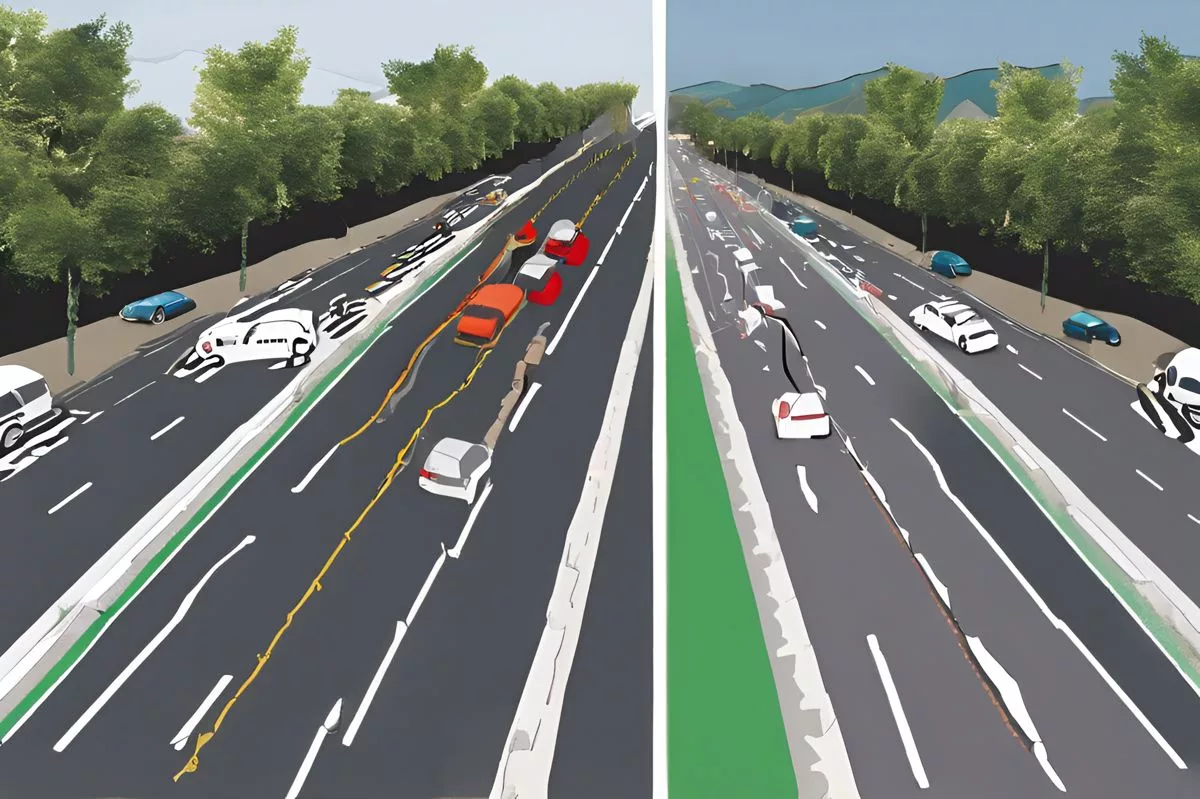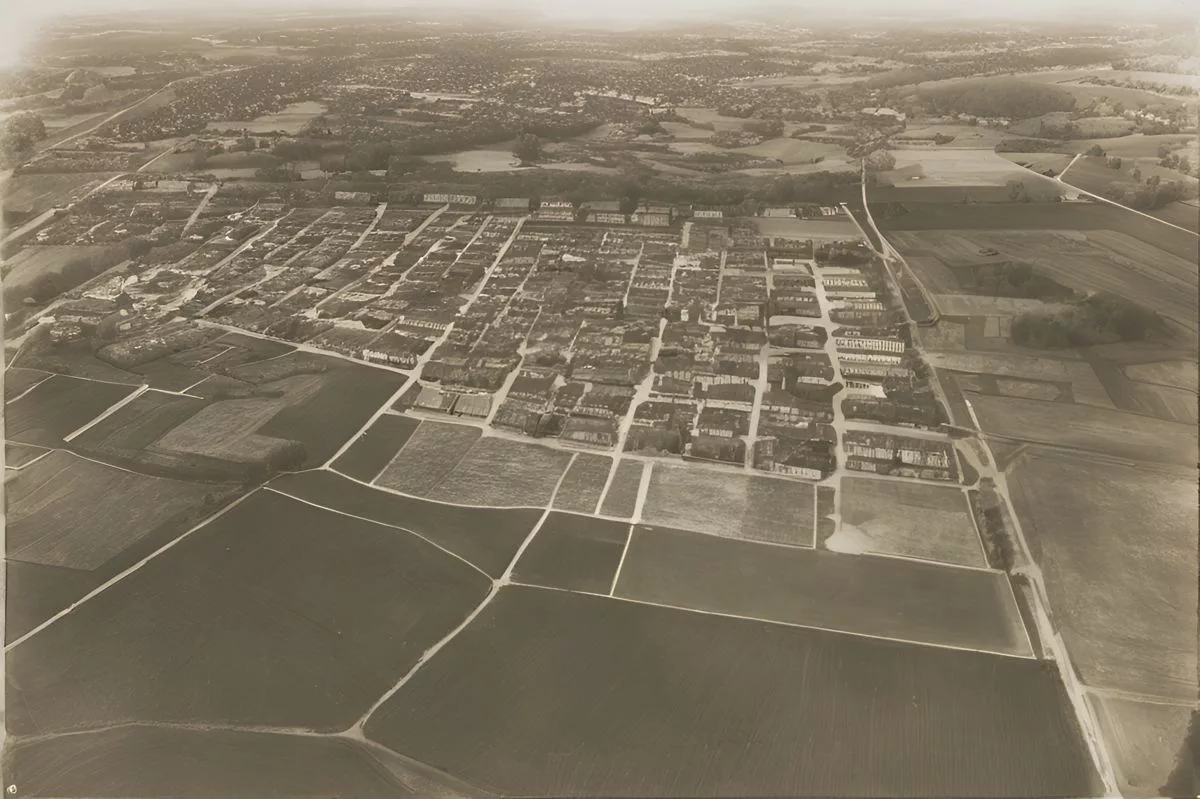The Jip de Jager Drive upgrade in Cape Town is set to transform the busy road into a dual carriageway by February 2025, making daily commutes smoother for many residents. This project, celebrated by local leaders, aims to reduce traffic jams and boost the economy by connecting communities better. As construction progresses, the road will feature new lighting and markings, ensuring safety for all users. Ultimately, this upgrade is not just about improving traffic; it symbolizes hope and progress for a vibrant, connected future in Cape Town.
What is the significance of the Jip de Jager Drive upgrade in Cape Town?
The Jip de Jager Drive upgrade is vital for improving traffic flow in Cape Town. Set to be completed in February 2025, this dual carriageway will ease congestion, enhance daily commutes, stimulate economic growth, and strengthen community connections, showcasing a commitment to urban development.
Transforming the Heart of Bellville
Cape Town stands on the brink of a significant transformation, showcasing its dedication to urban advancement. A key player in this evolution is Jip de Jager Drive in Welgemoed, Bellville. Once notorious for its traffic bottlenecks, this road is set to become a dual carriageway, offering a substantial upgrade that aims to ease the daily commute for countless residents.
The city’s leadership, including Executive Mayor Geordin Hill-Lewis and Urban Mobility Mayoral Committee Member Councillor Rob Quintas, visited the site on an October day in 2024. Their visit was part of the city’s annual Transport Month celebrations, which highlight Cape Town’s ongoing commitment to improving transport infrastructure. This event serves as a reminder of how these enhancements impact the lives of residents, fostering both direct and indirect benefits.
Mayor Hill-Lewis spoke with optimism about the progress of the project, now in its final stages. His vision paints a promising future where daily commutes become more manageable for thousands. The road upgrade, set for completion in February 2025, is poised to transform travel experiences along this busy stretch.
Progress and Promise: The Road to Completion
Councillor Quintas echoed the mayor’s hopeful outlook, commending the project team for their dedication and timely progress. The craftsmanship of the workers shines through in each completed segment of the road. He announced that traffic rerouting will begin within two weeks, allowing residents to soon experience the benefits of the new infrastructure. This rerouting marks a significant milestone in the project’s journey, as vehicles will soon traverse freshly paved sections instead of the former congested lanes.
This development transcends the mere laying of asphalt and concrete; it embodies vision and perseverance. The stretch from Jameson Road to Van Riebeeckshof Road is approaching completion, with final touches on retaining walls underway. While these details may seem minor, they are crucial for ensuring the road’s longevity and safety.
Lighting, a vital aspect of modern road safety, is also being addressed. The project team has confirmed that the installation of streetlights will proceed as planned. This meticulous attention to detail extends to road markings, which are on schedule and will guide drivers safely along the new carriageway.
Urban Planning: A Broader Perspective
The transformation of Jip de Jager Drive mirrors wider trends in urban planning. Cities worldwide are grappling with congestion as populations grow and urban areas expand. The solution often lies not just in creating new roads but in upgrading existing ones to meet contemporary needs. This project reflects a broader understanding that infrastructure must adapt alongside the communities it serves.
This road expansion is more than a local initiative; it symbolizes global trends in urban development. Cities from Mumbai to Madrid face similar challenges, balancing heritage with modernity, congestion with efficient flow. In Cape Town, the strategy is clear: invest in infrastructure today to ensure a smoother tomorrow.
Historically, roads have been critical to the advancement of civilizations. The Roman Empire’s extensive network facilitated trade and military operations, linking distant provinces. Similarly, Cape Town’s road projects aim to connect diverse communities, boosting economic activity and enhancing quality of life.
The Human Element in Infrastructure
Art and architecture have long been intertwined with infrastructure. The grand boulevards of Paris, designed by Baron Haussmann in the 19th century, are celebrated for both their aesthetic appeal and functionality. In Cape Town, while the focus remains on utility, the engineering and design of the new Jip de Jager Drive reveal an undeniable beauty.
Personal stories abound from those who have endured the congestion. For many, this road signifies the end of frustrating delays, missed appointments, and long hours in traffic. For others, it’s a beacon of progress—a tangible improvement in their daily lives. These narratives reveal the human side of infrastructure development, often overshadowed by technical jargon and budgetary concerns.
The patience exhibited by residents during construction highlights a community’s resilience and understanding. Their willingness to endure short-term inconveniences for long-term benefits is commendable. In many ways, the project’s success relies not just on the efforts of workers and planners but also on the support of the local populace.
Beyond Traffic: Societal Impacts and Future Prospects
Reflecting on the broader societal impacts, one sees more than just improved traffic flow. Better roads can stimulate economic growth, as businesses find it easier to transport goods and services. Social connections strengthen as people can visit friends and family more conveniently. Essentially, a road becomes a conduit for opportunity, linking lives and livelihoods.
Jip de Jager Drive, upon completion, will stand as a testament to what careful planning and community cooperation can achieve. It will remind us that cities are living entities, continually adapting to new realities. The project serves as a beacon of hope, illustrating that with effort and dedication, urban challenges can be met and overcome.
This moment in Cape Town’s history is not solely about the road itself but about what it represents: a commitment to progress, an investment in the future, and a belief in the power of infrastructure to transform lives. As Jip de Jager Drive nears its completion, it marks a new chapter in the city’s ongoing story of development and growth.
FAQ about the Jip de Jager Drive Upgrade in Cape Town
What is the Jip de Jager Drive upgrade project?
The Jip de Jager Drive upgrade is a significant infrastructure project in Cape Town that aims to convert the road into a dual carriageway by February 2025. This upgrade is designed to improve traffic flow, reduce congestion, and enhance daily commutes for residents while also stimulating economic growth and connecting communities more effectively.
When is the completion date for the Jip de Jager Drive upgrade?
The project is expected to be completed by February 2025. As construction progresses, residents can expect to see improvements in traffic management and overall road safety.
What are the key features of the upgraded Jip de Jager Drive?
The upgrade will feature a dual carriageway design, new street lighting, and updated road markings. These enhancements are aimed at ensuring safety for all road users, improving traffic flow, and creating a more efficient commuting experience.
How will the upgrade impact the local community and economy?
The upgrade is poised to positively impact the local community by reducing travel times and easing congestion. Enhanced infrastructure can also stimulate economic growth by facilitating the transport of goods and services, thereby attracting businesses and creating new opportunities for residents.
What has been the response from local leadership regarding the project?
Local leaders, including Executive Mayor Geordin Hill-Lewis and Urban Mobility Mayoral Committee Member Councillor Rob Quintas, have expressed optimism about the project. They emphasize its significance not just for traffic management but also for fostering community connections and promoting urban development.
Why is infrastructure development like the Jip de Jager Drive upgrade important for cities?
Infrastructure development is crucial for cities as it directly influences the quality of life for residents. Upgrading existing roads can alleviate congestion, connect communities, and support economic activity. Investments in infrastructure are essential for adapting to growing urban populations and addressing contemporary challenges, ultimately contributing to a city’s resilience and livability.











